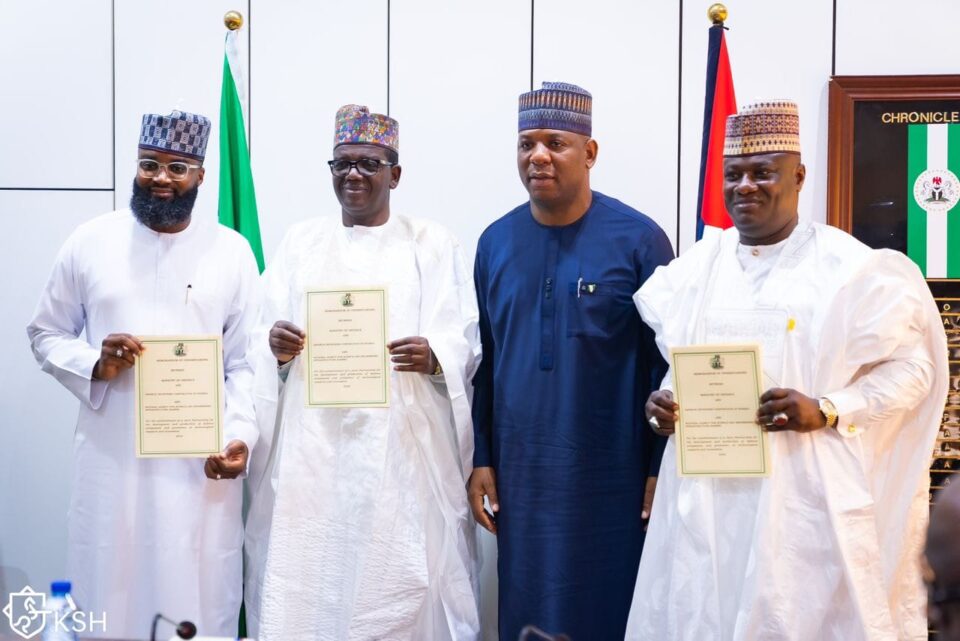By Chuks Oyema-Aziken
The Minister of State for Defence, Dr Bello Matawalle, has identified local production of arms and ammunition as one of the factors that will boost the value of the naira and overall economy, even as the country grapples with forex scarcity.
The Minister stated this on Wednesday in Abuja at the signing of a Memoranda of Understanding (MoU) between Ministry of Defense (MOD) vide Defence Industries Corporations of Nigeria (DICON), Ministry of Steel Development and the National Agency for Science and Engineering (NASENI) on the establishment of arms and ammunition production factory in Nigeria.
Matawalle noted that the country is grappling with a significant demand for ammunition, with the military alone requiring approximately 200 million rounds each year. He added that when the needs of other paramilitary forces and the police is factored in, the total annual requirement for ammunition surges to a staggering 350 million rounds.
“Therefore, I make a promise to Mr. President that as far as MoD, before the expiration of his four years, I assured him that DICON will be exporting its military capabilities.
“If today, we are manufacturing even 60 or 70 percent of our military hardware and ammunition, the ministry or military need for forex for importation of arms and ammunition every year would have reduced minimally.
Earlier in his remarks, the Executive Vice Chairman, NASENI Khalil Suleiman Halilu, said the signing of the MoU was a significant milestone in strengthening the nation’s defence capabilities and achieving self-reliance in the production of military hardware.
He noted also that the partnership between NASENI and the Ministry of Defence is a testament to the nation’s commitment to harnessing Nigeria’s scientific and engineering expertise in the service of national defence.
“NASENI has always been at the forefront of promoting innovation and technological advancement across various sectors in Nigeria, and with our track record of success in research and development, and manufacturing, we are well positioned to contribute meaningfully to the establishment of the Military Industrial Complex.
“Our goal is to create a robust ecosystem that does not only support the needs of the armed forces but also foster the growth of the local industries, thereby reducing our dependence on imports”. He added
Also in his remarks, the minister of steel development, Shuaibu Audu, stressed that the Ajaokuta Steel Plant provides a perfect platform for the Military Industrial Complex.
He said the Ajaokuta steel plant sits on about 24,000 hectares of land, while the steel plant, which has 44 production units, sits on 800 hectares and also has more than 10,000 housing units, of which only 3,000 to 4,000 are occupied.
“So it has the capacity to be able to withhold military barracks. There’s an engineering workshop in some of the production units there that can help to produce helmets, vests, rifles, bullets, and body parts for military tanks and the like.
“There are great opportunities for this initiative to dovetail into an MOU partnership between the Ministry of Defence and the Ministry of Steel Development to take this initiative further,” he said.
He noted that the collaboration is not only expected to enhance Nigeria’s defense capabilities but also to stimulate economic growth by creating jobs and reducing the country’s dependence on foreign imports.
The Permanent Secretary, Ministry of Defence, Ibrahim Kana, said that working together with the private sector, will lay a solid foundation for a self-reliant defense industry that can meet the needs of armed forces and contribute to Nigeria’s economic growth.



